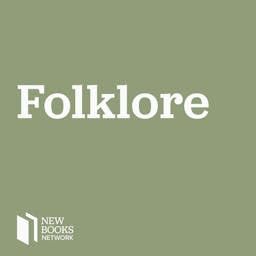The Brontës and the Fairy Tale (Ohio UP, 2024) by Dr. Jessica Campbell is the first comprehensive study devoted to the role of fairy tales and folklore in the work of Charlotte, Emily, Anne, and Branwell Brontë. It intervenes in debates on genre, literary realism, the history of the fairy tale, and the position of women in the Victorian period. Building on recent scholarship emphasizing the dynamic relationship between the fairy tale and other genres in the nineteenth century, the book resituates the Brontës’ engagement with fairy tales in the context of twenty-first-century assumptions that the stories primarily evoke childhood and happy endings. Dr. Campbell argues instead that fairy tales and folklore function across the Brontës’ works as plot and character models, commentaries on gender, and signifiers of national identity.Scholars have long characterized the fairy tale as a form with tremendous power to influence cultures and individuals. The late twentieth century saw important critical work revealing the sinister aspects of that power, particularly its negative effects on female readers. But such an approach can inadvertently reduce the history of the fairy tale to a linear development from the “traditional” tale (pure, straight, patriarchal, and didactic) to the “postmodern” tale (playful, sophisticated, feminist, and radical). Dr. Campbell joins other contemporary scholars in arguing that the fairy tale has always been a remarkably elastic form, allowing writers and storytellers of all types to reshape it according to their purposes.The Brontës are most famous today for Jane Eyre and Wuthering Heights, haunting novels that clearly repurpose fairy tales and folklore. Dr. Campbell’s book, however, reveals similar repurposing throughout the entire Brontë oeuvre. The Brontës and the Fairy Tale is recursive: in demonstrating the ubiquity and multiplicity of uses of fairy tales in the works of the Brontës, Campbell enhances not only our understanding of the Brontës’ works but also the status of fairy tales in the Victorian period. This interview was conducted by Dr. Miranda Melcher whose book focuses on post-conflict military integration, understanding treaty negotiation and implementation in civil war contexts, with qualitative analysis of the Angolan and Mozambican civil wars. You can find Miranda’s interviews on New Books with Miranda Melcher, wherever you get your podcasts. Learn more about your ad choices. Visit megaphone.fm/adchoices Support our show by becoming a premium member! https://newbooksnetwork.supportingcast.fm/folkore
Más
Menos

 57 m
57 m Dec 23 202558 m
Dec 23 202558 m Nov 8 20251 h y 10 m
Nov 8 20251 h y 10 m 56 m
56 m Oct 30 202551 m
Oct 30 202551 m 43 m
43 m Sep 25 202546 m
Sep 25 202546 m
